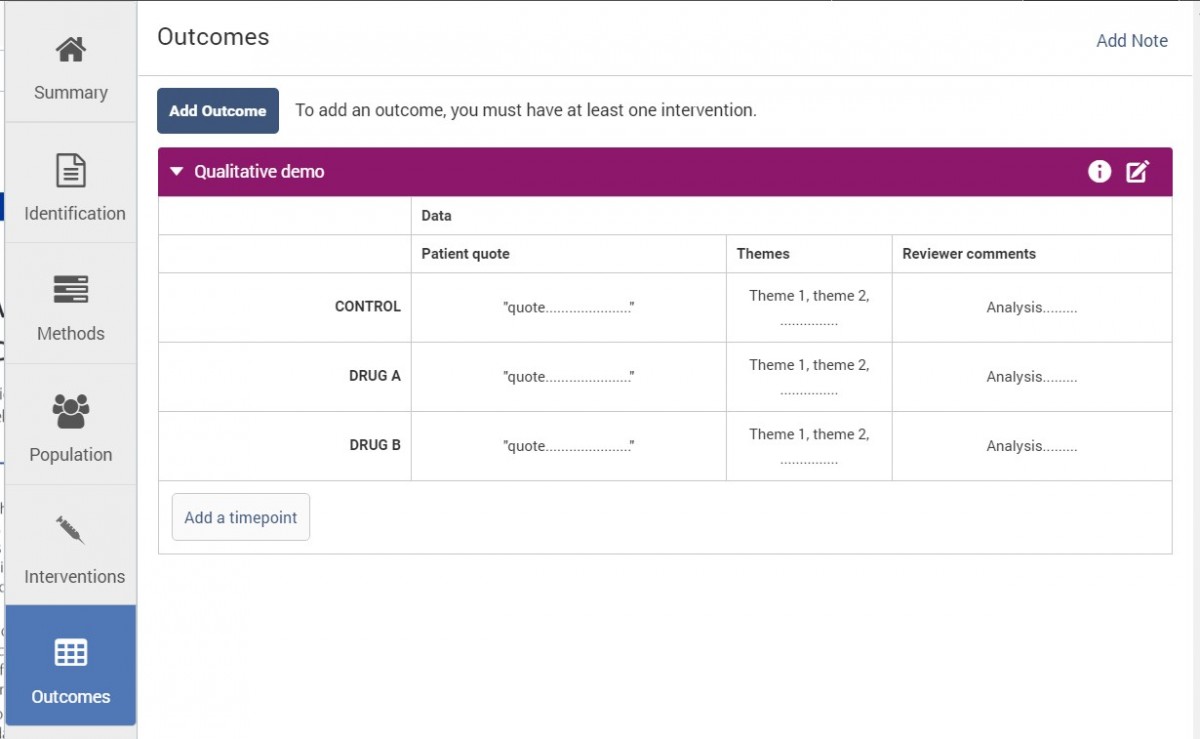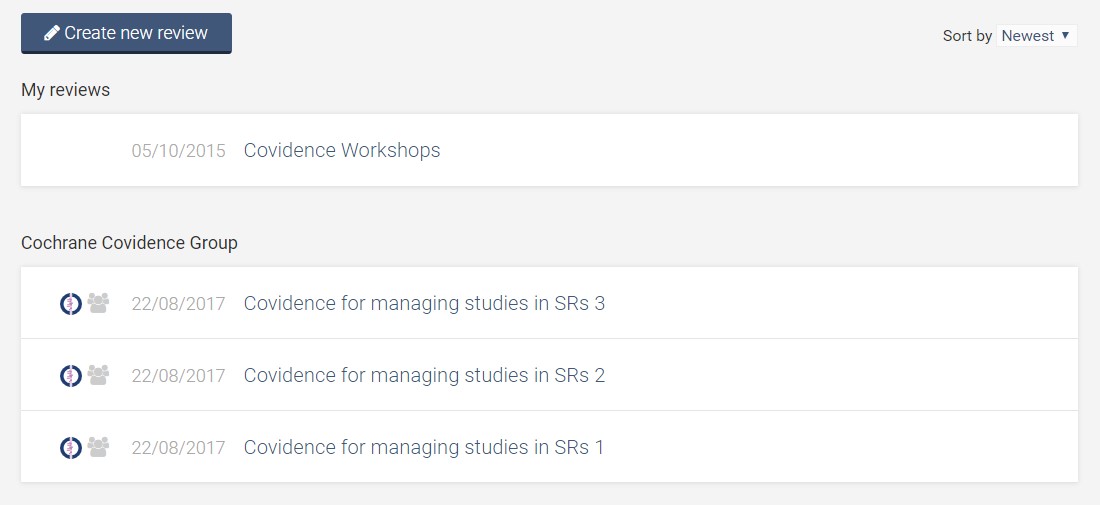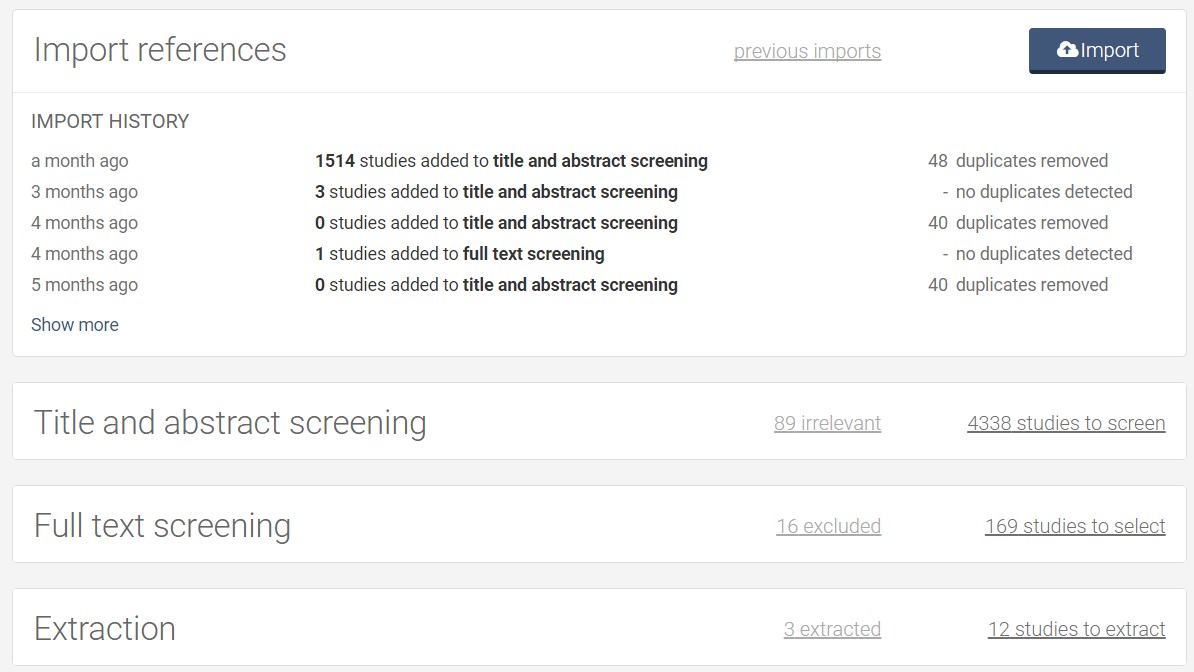
Covidence is one of Cochrane’s recommended tools to support you in some of the most labour-intensive stages of your systematic review, saving up to 35% of researcher time. Covidence allows your team to upload search results, screen abstracts and full text, complete data collection, conduct risk of bias assessment, resolve disagreements and export data into RevMan or Excel. Covidence is free to use for all Cochrane reviews, and is designed to be intuitive and user-friendly.
Want to know more about Covidence?
Give it a try and let us know what you think!
Visit Covidence
The Covidence platform continues to evolve, with recent product updates advancing the tool towards the vision of a world where answers to questions about health and other fields of human wellbeing are accurate, up to date and accessible. The Covidence team is committed to engaging with the Cochrane community and continuing to make improvements that are user-focused. Significant improvements have been made recently to data extraction and to importing.
Covidence at Global Evidence Summit
The Covidence team will be at stand 13A at the Global Evidence Summit in Cape Town. Please say hello and let us know how your research is going! In addition, two workshops will be held: Introduction to Covidence, and Covidence Forum. Introduction to Covidence is a complete walk-through of the tool designed for novice users. Covidence Forum is intended for individuals already familiar with Covidence, and will share more in-depth tips and have additional time for discussion and feedback.
Recent updates
Additional customisation during data extraction
Covidence has a streamlined data extraction form with many of the standard elements pre-programmed, minimising time research teams have to spend on constructing their forms. You can see a walkthrough of creating a data extraction form in Covidence here.
You’ll see that there have been several recent additions to make the form even more flexible. You can now create custom effect measures, in which the data type collected in the table can be an integer, a decimal, a percentage, or even free text for qualitative outcomes. Furthermore, these data types are now validated, so the system will flag for users when a data point differs from the indicated type. Custom text fields can also be added to several sections of the form, so if there’s information you’d like to capture that isn’t covered in the standard form, you can create a place for it.

Improved Imports
You can now view your import history directly from your review dashboard. In addition, in response to feedback that the de-duplication process was unclear, it is now displayed more explicitly in this improved review history on the dashboard. Finally, the structure of the importer has been significantly improved leading to faster and more stable imports!

What’s coming next
Upcoming work will focus on building relationships directly with each Cochrane Review Group to lay foundations for further integration between Archie / Cochrane and Covidence. Our intention is that in the future, reviews will be automatically created under the Cochrane Review Group in Covidenceas soon as they are registered, making it seamless for teams to begin work as soon as they’d like. Each review will be associated with a specific group account in Covidence, which will also enable editorial team members to easily see an overview of how everyone is going. Your Covidence homepage will look similar to the accompanying image, with reviews collated by review group for easy organisation.

Have some ideas on how to continue improving Covidence?
Thank you for voicing your feedback and user needs, these are an invaluable input into our product roadmap and prioritisationprocess. The Covidenceteam would love to hear more from you! Please contact CovidenceSupport at support@covidence.org if you’d like to share some ideas, have a chat, or just say hello!

